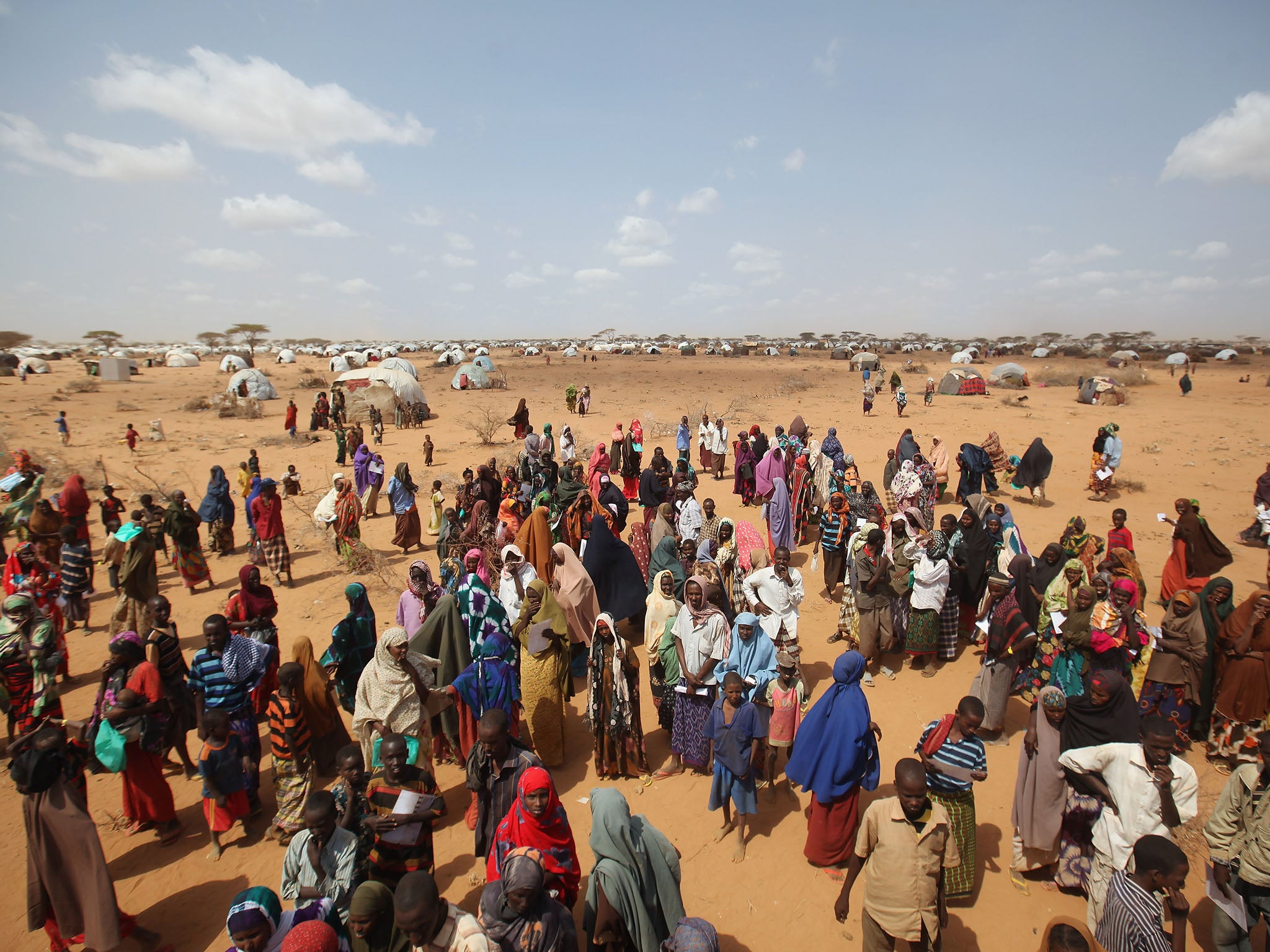As the Kenyan minister for national security, here's why I'm shutting the world's biggest refugee camp
'The Kenyan government’s most pressing constitutional and moral responsibility is to ensure the security of its citizens from the risk of violent attack. Our intelligence and security forces have known for a long time that these camps are a dire threat to our people’s security'

For reasons of national security, against a pervasive and persistent terrorist threat, Kenya is to close its two largest refugee camps in Dadaab and Kakuma. Between them, they house more than 600,000 refugees.
As some of the largest camps in the world, they have acquired iconic status. They represent decades of an open-hearted Kenyan response to those fleeing wars and persecution in our sub-region.
But some of the largest terrorist attacks, such as the 2013 Westgate atrocity, have been planned and executed from Dadaab. The Al Shabaab terrorist group has been able to take advantage of the camps’ overcrowded and under-resourced conditions, and most importantly the limits to policing United Nations run sites, to operate with an alarming degree of freedom.
Terrorism has killed hundreds of Kenyans, and injured thousands. It has also led to frequent Western country travel warnings that in their broad – and inaccurate – generalisations have ruined the livelihoods of thousands of families.
The Daadab refugee camp is home to almost half a million Somali refugees who fled their country due to decades of civil war. Since its inception in the 1990s, the camp has been clouded in controversy ranging from smuggling of goods and weapons from the neighbouring Somalia, to harbouring terrorists today.
The Kenyan government’s most pressing constitutional and moral responsibility is to ensure the security of its citizens from the risk of violent attack. Our intelligence and security forces have known for a long time that these camps are a dire threat to our people’s security.
This is not a decision without controversy and pain. Kenya, after all, has been a proud contributor to regional peace and security. In the Good Country Index, which measures what each country on earth contributes to the common good of humanity, Kenya is ranked 26th. It is 20th in contributing to international peace and security.
We are proud of that status, and will continue to sustain it in the broad spectrum of peace, security and trade arrangements that have led to it. However, as a country with limited resources, facing an existential terrorist threat, we can no longer allow our people to bear the brunt of the International Community’s weakening obligations to the refugees.
We have observed with dismay the environmental damage that the camps have caused to the detriment of host communities. The camps were built for a fraction of their population.
There has also been a fall-off in the voluntary international funding for the camps in Kenya, in favour of raising budgets in the northern hemisphere to refugees headed to the West. International obligations in Africa should not be done on the cheap; the world continues to learn the ruinous effect of these persistent double standards.
At great cost, our troops have liberated large swaths of Somalia from the hold of Al Shabaab, yet we are still presented with a picture of a country to which none of its refugee diaspora can resettle, while UN workers traverse much of that liberated territory with relative safety.
In April 2016, the 590th meeting of the African Union’s Peace and Security Council, a decision was made on the situation of refugees in the Dadaab Refugee camps in Kenya. The PSC acknowledged the “legitimate security concern of Kenya that the Dadaab Refugee Camps, in existence for more than 25 years, have been infiltrated and have become hideouts of Al Shabaab terrorist group, which exploits the camps to plan and carry out attacks against Kenyan institutions, installations and civilians.”

The Council deplored “that the Dadaab Refugee Camps have been deprived of their humanitarian character and function by the Al Shabaab terrorist group”. It further stressed that the “burden of refugees is the responsibility of the international community as a whole and not individual countries alone.”
That is a faithful analysis of the reality. We have moved to disband the government’s Department of Refugee Affairs. This is the first step to the permanent closure of the camps.
UNHCR, alongside its fellow humanitarian actors and donors, should now seek to ensure that the closure and repatriation is done in an expeditious and humane manner.
Our action is taken at a time when a growing number of countries – rich and poor alike – globally are limiting refugee entry on the grounds of national security. For much lower populations than Kenya has hosted for decades. We understand their reasoning at a time when the International Community is challenged and, unfortunately, far too paralysed in the face of metastasising terrorist threats.
Kenya has stood on the front-lines of challenging terrorism, upholding humanitarianism, and pursuing global peace and security. We, however, have no grounds to keep compromising the security of our citizens in the face of foot-dragging, double standards and lack of commitment in the rapid resettlement of Somali refugees in their homeland.
They deserve to participate in the political development of their country, which Africa and Kenya have shed blood to stabilise, while our people deserve every measure we can take to secure their lives and property.
Dr Karanja Kibicho is the Kenyan Principal Secretary for the Interior, which includes National Security
Join our commenting forum
Join thought-provoking conversations, follow other Independent readers and see their replies
Comments
Bookmark popover
Removed from bookmarks